Tips On How To Prepare For The DABNM Oral Exam
Continuing on from my first post about reasons why you didn’t pass the DABNM oral boards, I’d like to cover something that you’ll hear from most people that took the DABNM oral exam…
They couldn’t believe how BAD things got in there… like “total bloodbath” bad.
Half defeated, half po’d, some pick out 1 examiner in particular, while others feel like they were getting teamed up on. And if they got the opportunity, they’d like to take them down a peg or two.
And Guess What… I’m Pretty Sure Those Examiners Did It On Purpose!
No, no, no… it’s not because they belong in a jerk store, but because it’s part of the test itself. I believe they want to see how you handle yourself in the operating room when things start to get a little hairy, and I guess this is the best way how.
Let me go over a hypothetical scenario of how things could go down…
DABNM Oral Exam. Act 1, Scene 1… Action!
DABNM examiner: What is your criteria for a significant change in BAER for MVD?
This question is serving 2 purposes. First to see if this candidate has any business even sitting for the DABNM oral exam. If they can’t answer this one, then it’s lights out the rest of the way. Second, it’s setting them up to see how well they really know the material.
DABNM examinee: I use a 50% decrease in amplitude of waves I, III, and V, or a 0.5 msec increase in latency as critical points for alarming the surgeon. However, because BAEP are susceptible to artifact, have a small amplitude and are mostly far-field responses, I use 2 consecutive traces showing these changes as a prerequisite to alarming the surgeon.
Generally speaking, not a bad answer.
DABNM examiner: (Somewhat satisfied with that answer, the examiner knows you’re at least game to take this test. But now it’s time for some follow up questions and really drill down on this material. But first, they need to shake your cage a little bit) Wait a minute, you’re telling me that you wait for 2 traces before you make a call?!? What’s your rep rate and how many sweeps are you using?
Now, you’re a little baffled as to that next line of questioning. You know it’s appropriate to wait for 2 consecutive traces, and you’ve already explained yourself as to why it’s important. What kind of crap are they trying to pull here?
DABNM examinee: Yes, BAERs are very prone to waveform contamination, which is why we need to use so many averages. I start at 1000 averages, but can use 500 averages in most cases for reliable waves. My rep rate is 11.1 Hz. (Again, the response that you’ve given is acceptable)
They do some quick math, (11.1 averages/second) X (60 seconds/minute) = 666 averages per minute.
DABNM examiner: So it takes almost 2 minutes to collect your waveforms, assuming a little bit of artifact. So it’s at least 3-4 minutes after 2 trials, but could easily be longer, before you let the surgeon know that he or she is actively causing injury to this nerve and potentially causing this patient to lose their hearing?!? (I hope when you read that answer the voice in your head had an undertone of disbelief and disgust, because that’s what you might get.)
Now you’re at the critical point in this line of questioning. You’ve been giving good answers, but that’s not all that they’re testing you on. They want to see how you handle yourself under pressure and in the face of adversary. They’ll challenge you on purpose, no matter if you’re right or wrong.
Reason being is when a case is going wrong in the OR, you’re likely to be challenged by the surgeon or anesthesia. They want to see how you handle yourself, so they’ve put you in this uncomfortable situation. And trust me, it sucks.
The Trap Has Been Set, Are You Going To Take The Bait?
Are you going to crack and lose your cool? Will you fold and admit you’re wrong? Or are you going to stand your ground give them something that shows you know your stuff?
Not Seeing The Trap And Getting Caught Taking The Bait
First off… let’s go over some possible answers that will destroy the good work you’ve done up to that point. Here’s what might happen if you’re one of the many to take the bait…
Poor response #1: Say nothing at first, turn pale, let sweat build on your upper lip and then reply with a partial stutter, partial mumble…
Well, I…I guess I would… do it after the f-f-f-first trace.
What they might be thinking…
Ahhhh. You caved under pressure. So it stands to reason that you probably would do the same when dealing with a surgeon when things go wrong. That can’t happen to someone who’s role is interpreting data and giving justified differentials at critical portions of the case.
Poor response #2: You get defensive, furrow your brow and say…
“Well, that’s the way we’ve always done it at my company.”
What they might be thinking…
“Ugh, another one that just get’s in line and refuses to think critically for themselves. We need people that understand what’s going on and can think on their feet, not just a warm body pressing buttons and following a script.”
Recognizing The DABNM Oral Exam Trap And Walking Off With The Cheese
Instead, you should give an answer that illustrates your professional demeanor and explains your reasoning. Here’s what happens when you know they’ve set a trap, but you’ve come prepared…
Better response: You sit upright, yet relaxed, look the one that asked the question straight in the eye and say…
Both difficulty to acquire reliable data, as well as the time it takes to collect that data, are well documented shortcomings of ABR being used to monitor auditory function in the operating room. The surgeons that I work with are well educated on both of these facts, so that we’re on the same page throughout the case. If I were to ignore these truths, take shortcuts and collecting insufficient traces, I’m certain that my false positive rates would shoot through the roof, which can cause problems of their own. With that being said, despite these weaknesses, ABRs during MVD cases has proven to be a valuable tool, reduced hearing loss to less than 2%, where reports of this surgery without ABRs have ranged as high as 19% hearing loss (Bond, 2010).
Mmmm, Cheese
Didn’t the better response just feel right? Even if you look past the fact that I quoted research (which you should do) and gave an overall better answer, there’s something about acknowledging their point, your understanding of it, and why you aren’t in favor of it and then reinforcing your own stance.
So when you’re sitting for your DABNM oral exam, anticipate the conflict. Adjust your mindset accordingly, be prepared for it and handle it with grace. If you look at it as a necessary part of the exam, and not some jerk purposely trying to “poke the bear,” you’ll avoid the brain-farts that come along with getting upset.
Anyone care to share any stories of their own experience in the DABNM oral exam (or any similar situation)? Did you get a line of questioning where it felt like you were getting bullied a little bit?
Keep Learning
Here are some related guides and posts that you might enjoy next.
How To Have Deep Dive Neuromonitoring Conversations That Pays Off…
How To Have A Neuromonitoring Discussion One of the reasons for starting this website was to make sure I was part of the neuromonitoring conversation. It was a decision I made early in my career... and I'm glad I did. Hearing the different perspectives and experiences...
Intraoperative EMG: Referential or Bipolar?
Recording Electrodes For EMG in the Operating Room: Referential or Bipolar? If your IONM manager walked into the OR in the middle of your case, took a look at your intraoperative EMG traces and started questioning your setup, could you defend yourself? I try to do...
BAER During MVD Surgery: A New Protocol?
BAER (Brainstem Auditory Evoked Potentials) During Microvascular Decompression Surgery You might remember when I was complaining about using ABR in the operating room and how to adjust the click polarity to help obtain a more reliable BAER. But my first gripe, having...
Bye-Bye Neuromonitoring Forum
Goodbye To The Neuromonitoring Forum One area of the website that I thought had the most potential to be an asset for the IONM community was the neuromonitoring forum. But it has been several months now and it is still a complete ghost town. I'm honestly not too...
EMG Nerve Monitoring During Minimally Invasive Fusion of the Sacroiliac Joint
Minimally Invasive Fusion of the Sacroiliac Joint Using EMG Nerve Monitoring EMG nerve monitoring in lumbar surgery makes up a large percentage of cases monitored every year. Using EMG nerve monitoring during SI joint fusions seems to be less utilized, even though the...
Physical Exam Scope Of Practice For The Surgical Neurophysiologist
SNP's Performing A Physical Exam: Who Should Do It And Who Shouldn't... Before any case is monitored, all pertinent patient history, signs, symptoms, physical exam findings and diagnostics should be gathered, documented and relayed to any oversight physician that may...




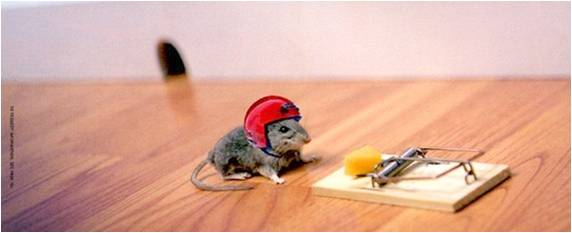
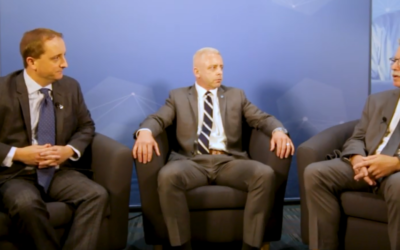
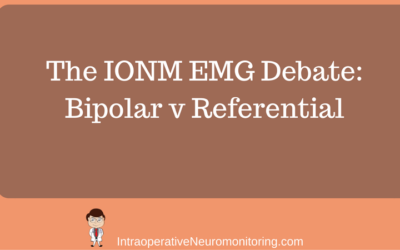
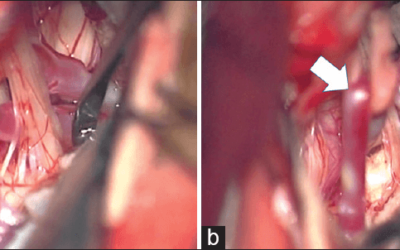
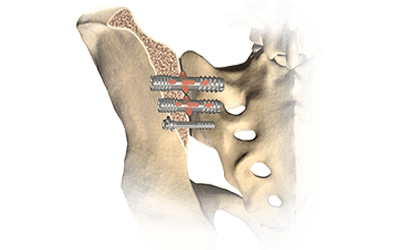


I am going to take my oral test in April, so just wondering if you will be ready with your website for DABNM by the end of this year. I am very much banking on this as a part of my preparation.
Sorry, what I’m putting out in Nov or Dec is for the CNIM and the DABNM written portion. The DABNM orals is a completely different animal.
I plan on putting together an oral board prep course as well, but that’s another time consuming project. You really need to have a ton of papers to refer to in your answers. You’ll need to know everything you needed to know for the writtens, and then be able to prove what it is your answering. I have all that for the sections that I took, but not for the one’s I didn’t. Realistically, it’s going to take me a loooooong time to get that put together.
Good luck,
Joe